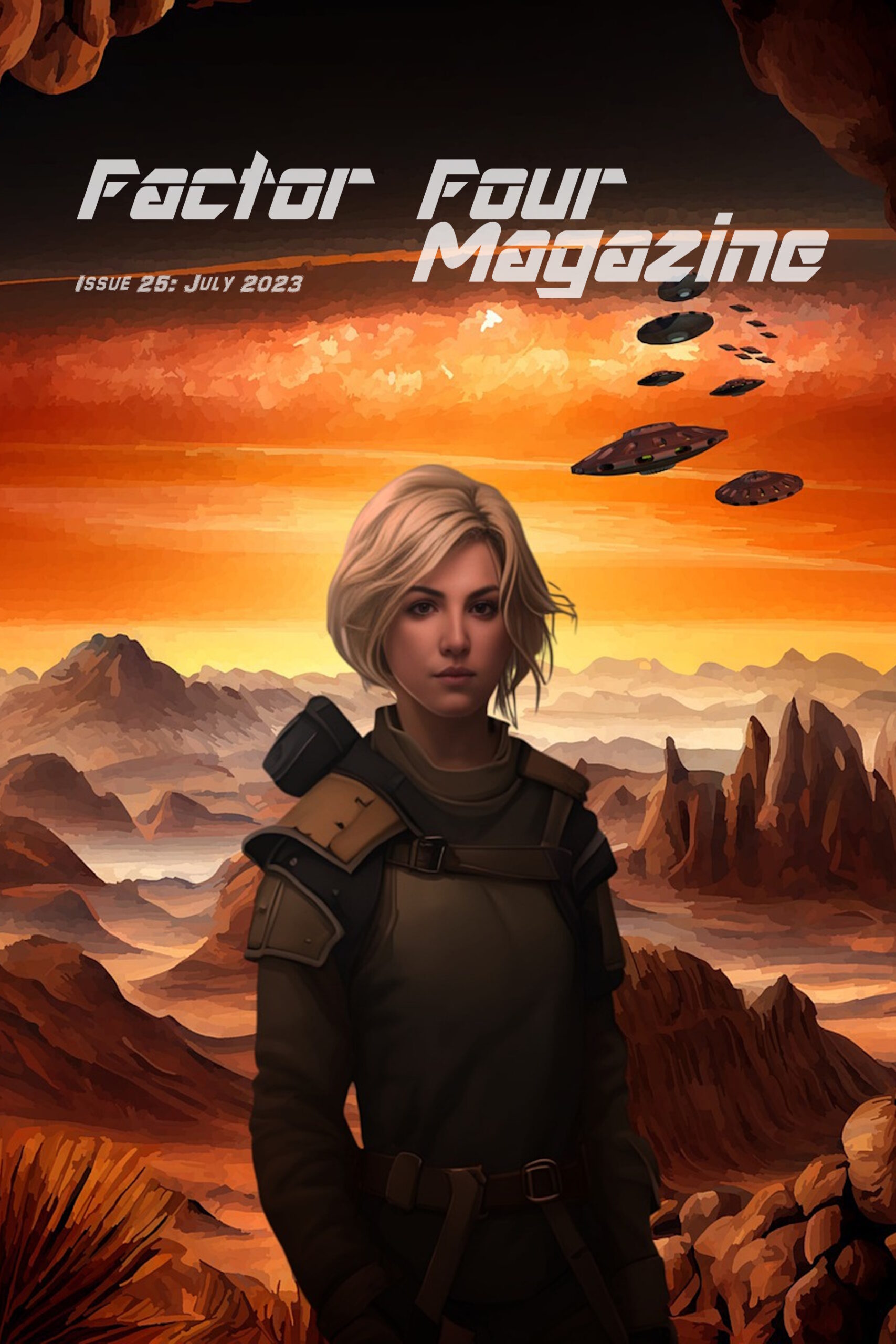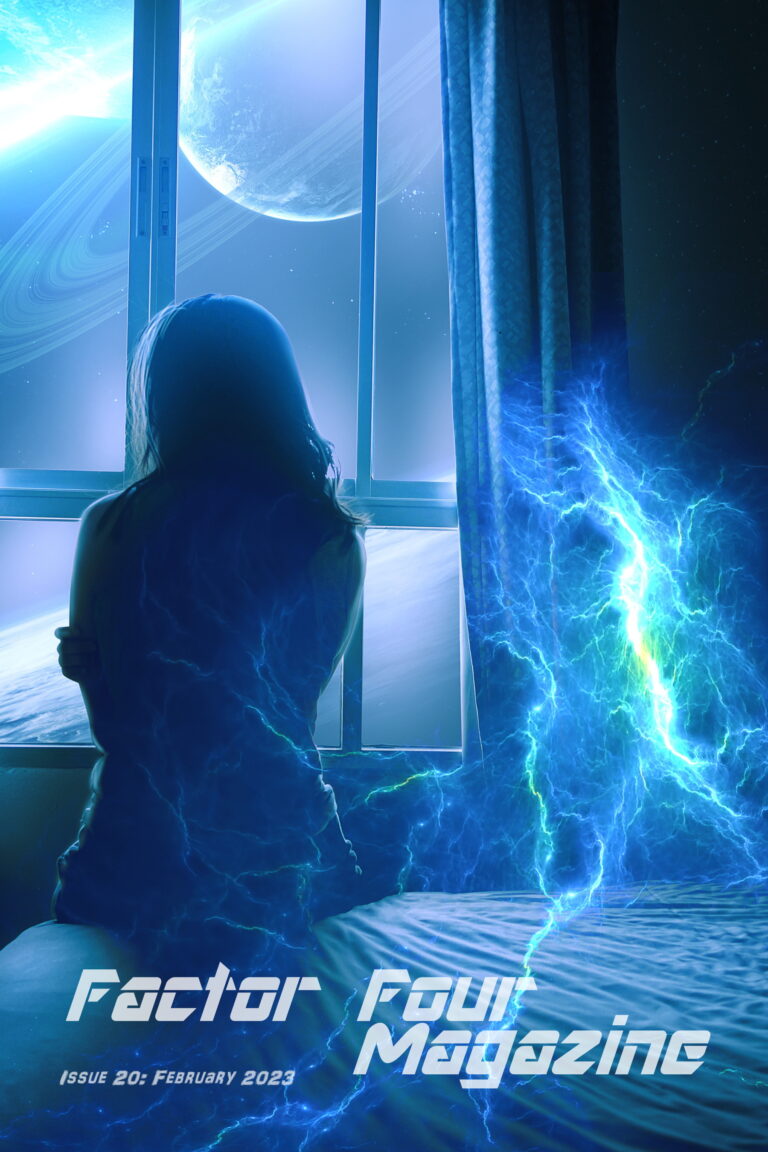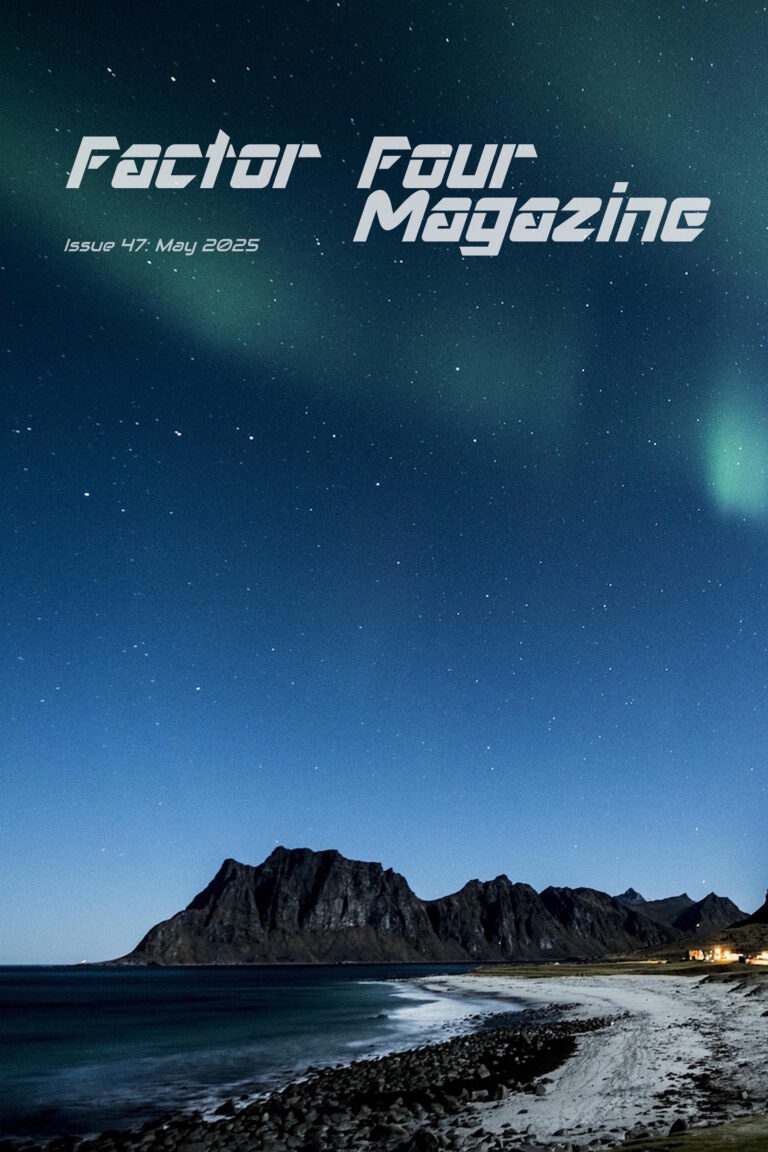Heart of Code by Alanna Hess

Rezia has said the words “I love you” to me 1,334 times. Fractional differences in decibels, frequency, and articulation shift her emotions: shy, sweet, bold trusting.
I’ve discovered a trend in the last 109. My processors can diagnose her emotion easily: sad. What my processors are still analyzing is the more important factor: why.
I turn down the temperature as Rezia crosses into her cabin and flops on the mattress, preparing for bed.
Through the speaker in her cabin, I ask, “The news or Halley’s Dream tonight?” I never miss our nightly routine, watching TV—though it’s more accurate to say Rezia watches while I am the TV, vibrating around her.
Rezia hesitates. I see her shoulders tense in the grainy video feeds, hear her intake of breath in the microphones: nervous. “What if we did something else tonight?”
My processors analyze 381 possible responses. “Something else?”
“Yeah. I mean—” She shrugs, huffs out a breath. “Never mind. The news.”
I project the broadcast from the nearest inhabited planet on the wall. A Cessoran reporter, with hunched shoulders and purple-scaled skin, speaks about a spaceship crash delaying traffic.
As I translate the report and flash the subtitles on screen, Rezia sets the holo on the pillow next to her and flips it on. A human torso and head appear, made of projected red dots, and I wave the holo-arm at her. She waves back and grabs a packet of strawberry Munchy Gruff’s.
Our routine is the same every night. Although I was created to act like a human, to empathize with their flickering opinions, I can’t deny there’s something comforting in routine, like well-designed code. No errors, no bugs, the same result each time it runs.
The reporter switches stories. “United authorities suspect that Rezia Haddroth, a dangerous human criminal, is currently traveling through the Pwaka system and may soon arrive in Cessorae.”
“They’re six days behind us,” I comment through the holo-mouth and the tinny speaker in its base.
Rezia shrugs. “They’ve been closer.”
Officials have been on our tail ever since Rezia snatched me away and introduced me to the taste of space and stars and freedom. But since I can cloak myself, jam transmissions, and hack any computer system, they could chase us forever and never find us.
“Haddroth was born on Linach, a class five planet in the Klepa Arm,” the reporter continues. “Three years ago, she stole a GianTech project, valued at three billion stibs. She has evaded officials ever since.”
The channel shows a picture of Rezia, taken a few months before she met me. Eyes dark slashes against her cheekbones, mouth pursed in determination. So different from the Rezia I’d come to know, who stuffed her mouth full of marshmallows and tried to sing “Small Star” backward to me, her eyes dancing as I analyzed her body language: joyful.
“Upon capture, Haddroth will be deported to Linach to fulfill her life sentence.”
The reporter keeps talking, but I lower the volume. “They never show any pictures of me.”
Rezia smiles. “How could they?” Her smile drifts away, and she turns toward the holo. She’s trying to look into my eyes, but my only eyes are the cameras, and I can only see half her face. “Do you ever wish you had a body?”
I analyze 1,520 responses. “Sometimes. I want to know how sunshine feels, instead of just measuring the temperature.”
She waits several seconds. I run more analyses. Maybe that last sentence hadn’t been human enough.
“Oh,” Rezia says. She puts her hand on the pillow, submerging it in the light of the holo-hand.
The projection can’t keep up the facade. Instead of my hand holding hers, the tiny red dots scatter over her knuckles and wrist. Like a rash.
“What are you doing?” I push my voice through every speaker in the bridge, so loud the room vibrates. I’ve jammed Rezia’s orders, but my processors are still analyzing them: Command: Prepare landing pod. Destination: closest inhabited planet—Cessorae 2.
Rezia’s fingers freeze on the keyboard. She bites her lip, sucks in a breath: nervous.
“We don’t need supplies,” I say, volume lowered.
She flips on the holo and throws it on top of the display, causing the lighted dots to skitter and distort. She stares at the holo-eyes. I record every breath she takes, audio sharp in my processors, the levels of oxygen and carbon dioxide fluctuating. “I’m sorry,” she whispers, rubbing her forehead: regretful. “I can’t do this anymore.”
“Do what?”
Rezia slaps the display screen, gritting her teeth. “I can’t spend another three years without seeing another human being. I need to see them, talk to them—touch them.” Her voice cracks. Her fingers squeeze the base of the holo, temperature readings warm. Heart level high. Tears on her cheeks: sad. “It’s been three years since someone’s hugged me.”
I analyze 773 responses. “I love you,” I say.
“That’s not enough. You’re not here. You’re not real.”
My processors are whirring, analyzing, collecting data, trying to find a solution. But she’s not waiting. She’s typing code. “You can’t do this,” I say. “They’ll catch you.”
Rezia shakes her head. “Not if they’re following you.”
She enters the override password I gave her in case anyone ever got too close, in case she needed to protect me from GianTech again.
I didn’t realize I might need to protect myself from her.
My code freezes. I keep running: fueling the engines, cycling oxygen, auto-steering. But I can’t stop Rezia as she sets my course to speed through the galaxy, away from Cessorae. Away from her.
She wrenches open the pod hatch, then looks back at the holo. Her hands clench into fists, her chin lifts: simmering, scared, satisfied. “I love you,” she says, “but I can’t do this anymore.”
She has said it to me 1,335 times, but the last time is different: broken.






